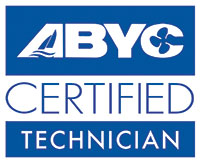Seattle Boat Electrical Repair
Found 59 results
MARINE ELECTRICAL REPAIR IN SEATTLE
HOW TO FIND THE BEST BOAT ELECTRICAL REPAIR IN SEATTLE
It’s no surprise that in Seattle the best place to find electrical repair for your boat is around Lake Union or Salmon Bay. When you’re looking at the qualifications of various service providers, be sure to look for marine electrical certifications from the American Boat & Yacht Council (ABYC). This is the independent non-profit that maintains all of the boat building standards adhered to by the manufacturers. Electrical is by far the most important and extensive standard issued by the organization given its potential risk to boaters’ safety. An important distinction here is that ‘electrical’ is not the same as ‘electronics.’ Put it this way, someone could come and install a new stereo on the boat, but that doesn’t mean that it’s going to work harmoniously with the boat’s electrical system and you could end up blowing fuses constantly. Electrical systems can be very complex on a boat, and thus need trained experts to ensure they work properly. Check out marine electricians near you for more information (follow the link and enter in your town).
DIY BOAT ELECTRICAL REPAIR
Some boaters may be brave enough to fix electrical problems themselves. If that’s the case for you, here are some tips to help you repair your boat’s electrical system. We encourage you to take all of the safety precautions necessary to protect yourself prior to beginning a repair project. This is by no means a comprehensive boat electrical repair guide, but rather some helpful tips for those with experience. We strongly encourage you to hire a marine electrician if there’s a complex issue or you’re new to boating.
-
ABYC code uses yellow for DC ground: DC wiring used red for positive and black for ground, while AC systems use black for hot, white for neutral, and green for ground. In order to distinguish between DC ground wire and black AC wire, the new ABYC code uses yellow instead of black for DC ground.
-
Bypass the master switch for the bilge pump: When you switch your battery off after a day on the boat, you don’t want the bilge pump to turn off or you might end up with a hull full of water. Wire your bilge pump to the battery with a fuse in the line so that it bypasses the master switch.
-
Watch your zincs: Your zinc anodes will start to degrade faster if there is electrical current in the water. This could be a sign that wiring from your dock (or somewhere else nearby) is compromised and there is exposed wiring in the water.
-
Wire bundling: Run your electrical wiring as high as possible and do not mix AC and DC wires in the same bundle. Do not place an excessive amount of DC wires in the same bundle either since these generate a lot of heat. Also, do not place more than 4 wires on a bus bar or terminal block screw and always cover the bus bars and terminal blocks. If you are bundling wires without conduits, make sure to use spiral wrap or use wire ties and/or clamps every foot or so. However, make sure that the wire bundle is not in an area where it will be rubbed against - this could lead to chafing and eventually dangerous exposed wire.
-
Do not mess with navigation system cables: Boaters will often try to shorten cables for GPS or radar, but this is almost always a bad idea. If you hire a professional for any repairs then they should be able to take care of the excessive cable.
-
Crimp wire terminals with a ratcheting crimper: You’re going to need a high quality ratcheting crimper to crimp the wire terminals correctly. You can also solder the wire terminals, but be sure to use a heat sink to prevent the solder from wicking up the stranded wire. Also, you should always use a crimp connector and never use wire nuts in your boat’s electrical system or place twisted wire under terminal screws.
-
Mind the battery: Ideally, you should have a marine grade battery box to house the battery. Make sure there is an adequate bracing mechanism to keep the battery from moving. The vibrations of the engine and water pounding against the hull make this a necessity. The best batteries to use these days are still flooded cell lead-acid batteries. Make sure to keep an eye on the battery charge and only top off batteries with distilled water. Be sure to install the right size fuses between the batteries and the switch and never turn the master switch for the battery while the engine is running.
-
Multi-meters are your best friend: You’ll need to buy a multi-meter to adequately test electrical circuits and make repairs.


